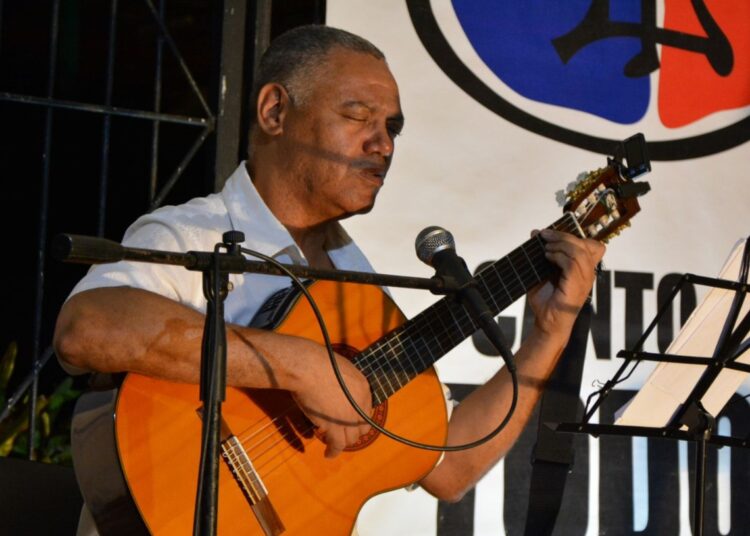After graduating in Chemical Engineering, he went to work briefly at the España Republicana sugar factories, one of the most productive in the country until its final closure as part of the restructuring of the Cuban sugar industry.
The young engineer also sang. In the 1970s, he joined the New Song Movement in Cárdenas, his hometown. In the 1980s, he began performing as a tenor in the Matanzas Chamber Choir, under the direction of Dr. José Antonio Méndez Valencia.
He participated in those Todo el Mundo Canta festivals and surprised everyone with his vocal work in the Nueva Era Trio. He says that Adalberto Álvarez invited him to his group, but he was about to become a father and move to Havana: it wasn’t an option.
When the difficult years of the Special Period arrived between 1990 and 1993, his son was still young; then he made cardboard toys: ambulances, police cars, robots. He learned to make birthday signs and cake toppers. He learned to cook and sold ice. No one has been able to name it differently; it wasn’t a dessert or a snack, it was powdered soda-flavored ice.
He went with his wife and the little one to live with his mother in Matanzas. Every night, for seven years, he would set up a daybed to sleep on next to the sofa where he put his son to bed. In the morning, he had to disassemble the makeshift room to convert it into a foyer, where he displayed his handicrafts for sale.
His closet consisted of two screws behind a door; his clothes, of any size.
He was given a bicycle to take his son to the daycare center, he later sold it buy essentials.
One summer, he took his family to Varadero. When the little boy got hungry, he traveled around the peninsula looking for something he could afford with his local currency. After a long walk, his son asked him, “Dad, aren’t we ever going to eat?” And then he burst into tears.
A few weeks later, he started working for the tourism sector in hotels. The cooks gave him food from the buffet tables; he would wrap it up and keep it in the hole of his guitar to evade the guards at the door, because some managers preferred to get rid of leftover food before allowing workers to take it home to their families.
Let’s say this young man is already over 60. He left the hotels after they tried to force him to sing with his guitar around the pool. But he never gave up his job in the Chamber Choir, even though his salary almost never arrived on time.
He is a music teacher in secondary schools; he has founded children’s projects and written scores for theater and television, while continuing to prepare the best meals even if he doesn’t have the necessary ingredients. He does the electrical wiring for his house and his children’s house. He knows about plumbing, masonry and sewing.
He still makes toys, now for his grandchildren. He invents songs based on poems. He is the best grandfather because he was the best father, and his children strive to be like him every day.
This traditional view, which considers motherhood as unique and irreplaceable, is biased; while fatherhood, in some contexts, is perceived as distant and less committed.
This man’s story, like that of many Cuban fathers, illustrates another scenario. In Cuba, where the perennial crisis demands anonymous heroes, being a father is an act of daily resistance.
This is the story of my father. So, could anyone say he’s just ordinary?










